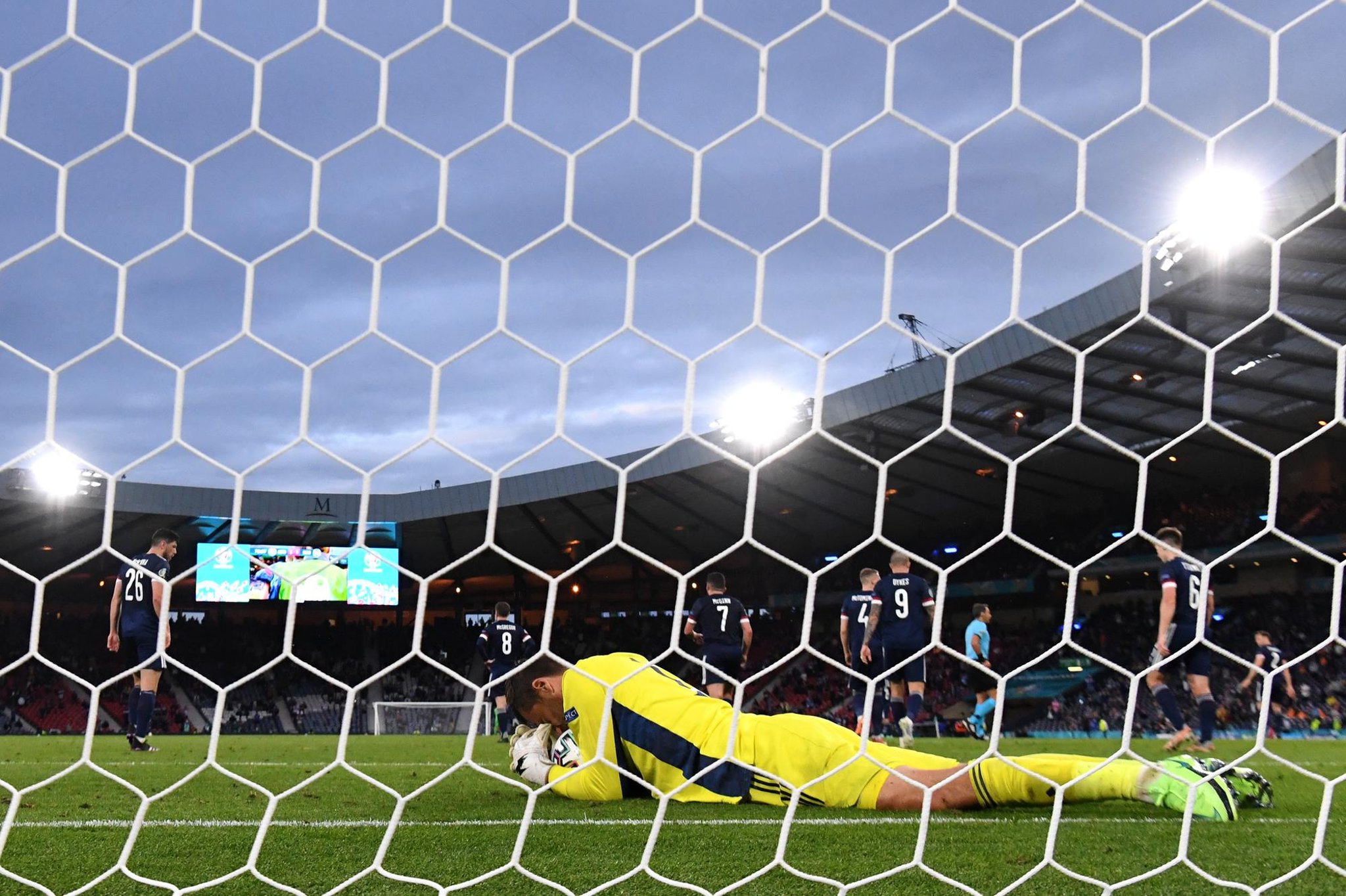
As Clarke turns his attention to trying to ensure the country does not endure another 23-year wait to return to the big stage, there are no shortage of issues to ponder which emerged over the course of a campaign which captured the public imagination but which ultimately saw hope confronted by a familiar feeling of despair.
A star is born
Let’s start with the good news. Billy Gilmour’s stellar performance in the 0-0 draw against top seeds England at Wembley was unquestionably the highlight of Scotland’s involvement in the tournament.
It begged the question of why the precocious 20-year-old midfielder hadn’t started the Group D opener against Czech Republic and increased the agony of him being ruled out of the Croatia match after returning a positive Covid-19 test result.
No-one can any longer be in doubt that Gilmour, whether a Chelsea regular or on loan elsewhere next season, is the player around whom Scotland’s future must be constructed.
Defensive woes
While that clean sheet at Wembley was admirable, Scotland conceded five goals in two games at Hampden which understandably irritated a coach like Clarke who sets such store by defensive organisation.
The wonder strikes by Czech striker Patrik Schick and Croatian magician Luke Modric, two of the finest ever witnessed at Scotland’s national stadium, can be forgiven.
The other three, from bread-and-butter crosses or set plays, were of greater concern and have to be addressed.
Right-sided issues
While left-backs Kieran Tierney and Andy Robertson have both been successfully accommodated by Clarke in a 3-5-2 set-up, Scotland were less convincing on the right flank.
Although Stephen O’Donnell produced an admirably robust display at Wembley, he looked vulnerable and out of his depth against both the Czechs and Croatians.
Nathan Patterson’s late cameo on Tuesday night offered a glimpse of the composure and technique the 19-year-old brings to the role and, like Gilmour, the Rangers player should get the chance to establish himself as a regular from now on.
Blunt instruments
Their chance-conversion rate was simply dismal over the course of the three matches.
Clarke will keep faith with Lyndon Dykes and Che Adams, while Kevin Nisbet is pushing hard to dislodge one or both of them. But Scotland need to find a more reliable formula up front if they are to make the kind of progress the manager insists is achievable.
Was my journey really necessary?
Of Clarke’s 26-man squad, six played no part in the three Group D matches.
Goalkeepers Craig Gordon and Jon McLaughlin were always set to be simply back-up for David Marshall, while Celtic left-back Greg Taylor is third choice in Scotland’s strongest position.
Declan Gallagher was the only one of Clarke’s central defenders not to see any game time, while midfielders John Fleck and David Turnbull were the others who spent the tournament on the sidelines.
Midfield contenders
If Billy Gilmour staked an emphatic claim for a regular berth in Clarke’s starting eleven, getting the overall balance right in midfield remains an issue.
Callum McGregor dovetailed superbly with Gilmour at Wembley, allowing Scott McTominay to drop into the back three.
Assuming injury absentees Ryan Jack and Kenny McLean are available again when Scotland return to action next season, Clarke has no shortage of options as he tries to find the right mix.
Next stop Qatar?
It will be a relatively swift turnaround for Clarke’s squad who resume their 2022 World Cup qualifying campaign in just 10 weeks’ time with a triple-header at the start of September.
Two away matches against Denmark and Austria, both more impressive and effective than the Scots at Euro 2020, will sandwich a Hampden showdown with minnows Moldova.
With four points already dropped in the first three Group F matches back in March, Clarke faces an uphill battle to secure a berth in next year’s Qatar finals.
Keeping the Tartan Army onside
While just under 10,000 paying punters were allowed inside Hampden for the games against Czech Republic and Croatia, there’s no doubt a warm relationship was reignited between the Scotland team and the supporters.
That feelgood factor will only be sustained if Clarke’s team make a decent fist of their remaining 2022 World Cup qualifiers, while the quest to reach Euro 2024 in Germany will begin in March 2023.
Flattering to deceive?
For all of the plaudits they received for the performance at Wembley, Scotland have now won just two of their last 10 games – those victories coming against Luxembourg and Faroe Islands.
More meaningful and consistent successes are needed to convince a wider audience that Scotland can emerge as a credible force on the international stage.
Clarke’s future
Clarke is under contract until the conclusion of the 2022 World Cup campaign and Scottish FA chief executive Ian Maxwell indicated even before the Euro 2020 finals that he wants to extend the 57-year-old’s tenure.
While he has been linked with a return to club management, Clarke appears fully committed to his current role. Although ultimately disappointing, the Euro 2020 finals experience seems only to have hardened his determination to improve Scotland’s fortunes.


